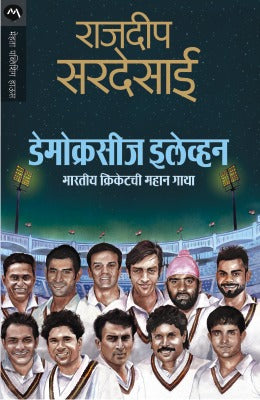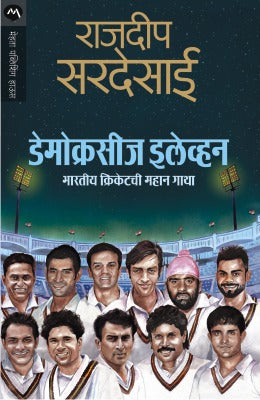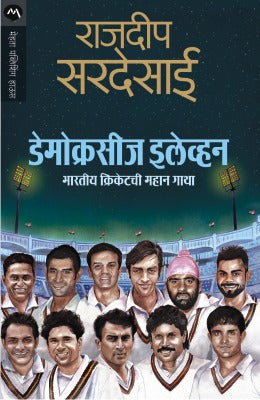DEMOCRACYS XI
DEMOCRACYS XI is backordered and will ship as soon as it is back in stock.
Couldn't load pickup availability
Genuine Products Guarantee
Genuine Products Guarantee
We guarantee 100% genuine products, and if proven otherwise, we will compensate you with 10 times the product's cost.
Delivery and Shipping
Delivery and Shipping
Products are generally ready for dispatch within 1 day and typically reach you in 3 to 5 days.
Book Details
-
Publisher: Mehta Publishing House
-
Translator: Meghna Dhoke
-
Language: Marathi (Translated from English)
-
Edition: 1st Edition
-
Publishing Year: November 2018
-
ISBN: 9789353171308
-
Pages: 512
-
Cover: Paperback
-
Category: Sports
About the Book
Nothing unites India like cricket. The Indian cricket team, a glorious mix of people from different religions, classes, castes, regions, and languages, reflects the country’s diversity and unifying spirit. From the son of a pump manager in Ranchi to the child prodigy of a Marathi professor in Mumbai, and a Muslim from the bylanes of Hyderabad—this vibrant team represents the convergence of disparate backgrounds, bound together by fate and determination.
While politics and Bollywood are often dominated by dynastic legacies, cricket in India has always been a meritocratic space, where talent and perseverance speak louder than lineage. But it wasn’t always like this. In the days of British rule, cricket was often associated with racism and communal division, with separate teams for Hindus and Muslims and Dalits excluded from the game.
Rajdeep Sardesai, bestselling author and journalist, brings us the compelling story of post-independence Indian cricket, chronicling the lives of eleven extraordinary cricketers who embodied the changing face of India. From Dilip Sardesai and Tiger Pataudi in the 1950s to M.S. Dhoni and Virat Kohli today, this book is not about an all-time best Indian cricket eleven but about the profound transformation of the nation itself, seen through the lens of cricket.
The book takes readers on a journey through the evolution of Indian cricket—from the era when cricketers traveled by train and earned only a few hundred rupees for test matches, to the dazzling, multimillion-dollar IPL. Sardesai’s narrative highlights how cricket has been a mirror to a post-colonial India finding its identity, self-respect, and pride on the world stage.
This is a must-read for cricket fans and anyone interested in understanding the deep connection between sport and society in India, showcasing how cricket has not just evolved but also helped shape the country’s social fabric.





